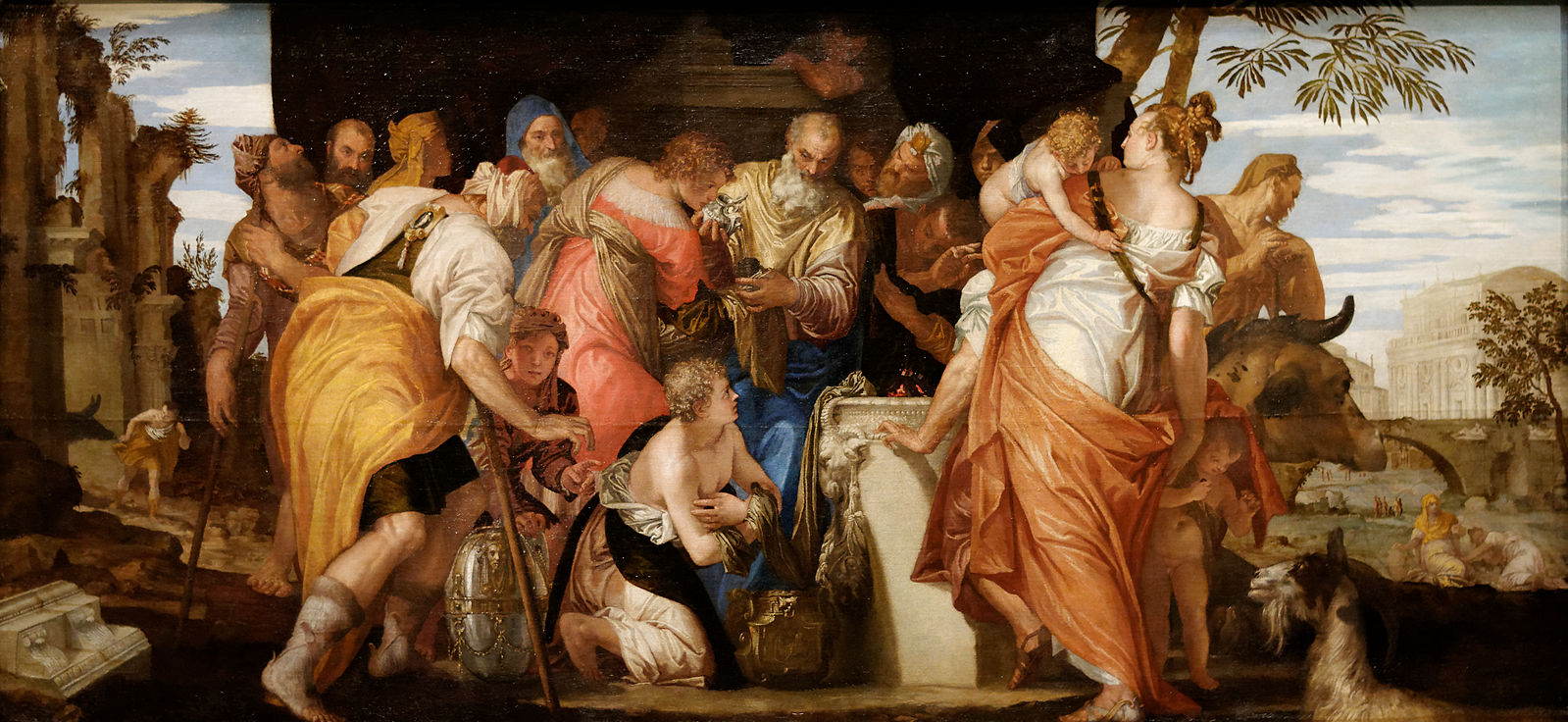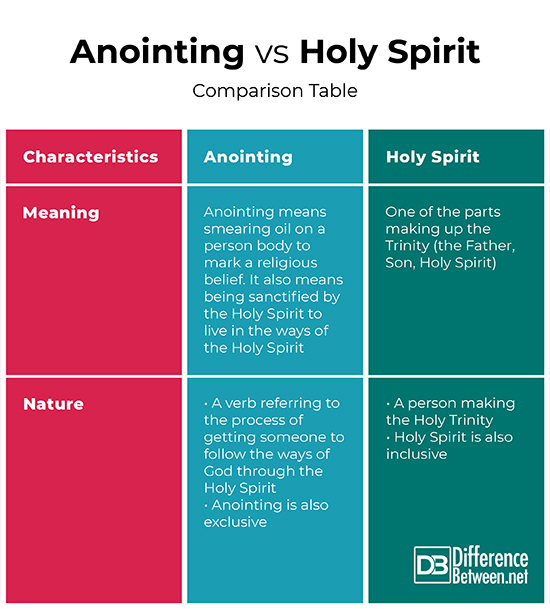Difference Between Anointing and Holy Spirit
Quite often, we sing, preach, and talk about how we want to be anointed and live with the Holy Spirit in us. The truth is, we rarely know what either of them means or when to apply each. While the Bible is quite clear on anointing and getting the Holy Spirit to live in you, most people disregard the same teachings for different reason.
Some disregard them with total disregard that they are disregarding them. This is mostly associated with a lack of better knowledge of what either refers to. The hard truth is that most of the people we call “anointed” and expect to lead the way for the congregation are the biggest reason congregants get lost in the midst. If only they would have the two terms laid out for them with their meanings and differences, interchanging them will no longer be a problem.
Hearing someone say they are living the way of the Holy Spirit ever since they were anointed won’t be a surprise despite their actions saying otherwise. It is a common misunderstanding, and now people openly replace anointing with the Holy Spirit and vice versa. However, with a little more understanding of the terms and how different they are might help in the long run.
This post seeks to draw the distinction between the two.
Meaning of Anointing
The term ‘anointing’ has two variations and, therefore, can take two definitions. The first one is a verb which means smearing, applying, or rubbing oil on an individual, usually as a religious belief or part of a religious ritual.
Also, it has a spiritual meaning where it refers to the act of being anointed with the Holy Spirit. When a Christian is anointed spiritually by the Holy Spirit, it sanctifies the Holy Spirit’s influence on the Christian’s life.
Origin of Anointing
The act of smearing oil on the head or body of an individual as an anointment can be traced back to a common practice associated with the Jews and other Oriental nations.
Evidence of Holy Spirit’s Anointing
One is able to feel the manifestation of the Holy Spirit after anointment. The individual can:
- Hear sermons or teachings that stir their spirit.
- Hear songs that move them spiritually.
- See individuals getting healed by the Spirit.
- Witness messages said by speaking in tongues and get the interpretation.
- Speak in tongues.
- Speak a word of healing to an individual who is ailing.
- Interpret the Word of God in deeper ways and differently from other congregants.
Meaning of Holy Spirit
In Christianity, the Holy Spirit is defined as an individual representing the third person of the Holy Trinity. In other words, the Holy Spirit is among the three parts of God namely the Father, the Son, and the Holy Spirit. As such, it also means God who is active and present spiritually in the world.
Characteristics of the Holy Spirit
From the teachings of the Bible, we can derive that the Holy Spirit is:
- Personal
- Particular (Deity)
- Powerful (regarded as God’s presence on Earth).
- Omnipresent
- Omnipotent
Differences Between Anointing and Holy Spirit
The differences between the two terms are as described below:
-
Meaning of Anointing and Holy Spirit
The term anointing means smearing or applying oil on an individual’s head or body usually to mark a religious ceremony or belief. To be anointed by the Holy Spirit means sanctifying the individual’s ways to be in line with the teachings of Jesus Christ and the ways of the Holy Spirit.
Holy Spirit, on the other hand, means an individual that makes up the Holy Trinity. This means the third part used to refer to God’s Trinity, that is Father, the Son, and the Holy Spirit.
-
Nature
Anointing is a verb where an individual gets anointment oil applied on their head or body while Holy Spirit is a proper noun referring to one of the parts representing the Holy Trinity.
Also, anointing is exclusive while the Holy Spirit is inclusive.
Anointing Vs. Holy Spirit: Comparison Table
Summary of Anointing verses Holy Spirit
While delving deeper into the meanings of the two terms, more light is shed to the reader. For example, going through the New Testament teaches that one becomes the Holy Spirit’s temple and contains the Holy Spirit’s anointing once they believe. With that, they are able to do much more by faith through God’s empowering, for example, baptizing and laying hands to confirm believers, praying in tongues, and laying hands on the sick. This sheds more light on what each of the terms refers to and widens the scope of a readers understanding of such teachings.
- Difference Between Minecraft and Terraria - August 7, 2020
- Difference Between Alliteration and Onomatopoeia Poems - July 25, 2019
- Difference Between Certification and Licensure - July 24, 2019
Search DifferenceBetween.net :
12 Comments
Leave a Response
References :
[0]Image credit: https://commons.wikimedia.org/wiki/File:The_Anointing_of_David_-_Veronese_1555.jpg
[1]Image credit: https://commons.wikimedia.org/wiki/File:Christ_the_King_Catholic_Church_(Ann_Arbor,_Michigan)_-_interior,_Holy_Spirit_window.jpg
[2]Kruger, Michael et al. "What Is Anointing? Ordinary And Spiritually Anointed Definitions, Meaning". Bible Study Tools, 2019, https://www.biblestudytools.com/dictionary/anointing/.
[3]"The Characteristics Of Holy Spirit". Sermons.Faithlife.Com, 2019, https://sermons.faithlife.com/sermons/19731-the-characteristics-of-holy-spirit.
[4]"The Difference Between The Anointing And The Glory". Maggie_G1.Tripod.Com, 2019, http://maggie_g1.tripod.com/id17.html.




I am blessed by studying your article
EXCELLENT EXPLANATION.
BRETHREN,NEVER BE CONFUSED AGAIN.
I LIKE USING
‘THE ANOINTING OF THE HOLY GHOST’
WHENEVER I AM TEACHING OR
PREACHING.
DR.JAMES GITAU
Great work
The Holy Spirt is the anointer. He is the one that anoints when you become born again. The anointing is the nature of Christ, as you manifest the anointing you are manifesting Christ.
Good explanation. Great. Broke it down
Thanks for this revelation
Clearly distinguish the difference between the anointing and holy spirit
Why do preachers still teach believers are baptized into the church with water by a local visible church. Paul says in 2 Thess. 2:13 God has chosen us from the beginning to salvation through sanctification of the Spirit and belief of the truth. To me this is not in agreement. Jesus also said in Acts 26:18 that it is by faith that is in Me.
Jesus Himself took Baptism as fulfilling the Righteousness of God. Act of obeying & His Desire. Effect & Importance – Romans 6;1-11. We then Put on Christ; put on Light Gal 3:27. Since we are born again, Born of God, we must bury the old man in us. 1Pet 3;21 — submitting ourself with pure conscience to God. Baptism does not save but saved person must obey in Baptism. Mark 16:16 it’s just in brief study. Though much remains to learn on this issue.
Kindly read Matthew 28:18-20 and Acts 2:38-40
I thank GOD for using you by way of the Holy Spirit to share such a simplified, understandable explanation of these differences. May HE continue to use you to make word definitions simple to understand that even a child can know the difference. Maxine
When I pray I asked God to anoint the speaker. Is that necessary since the preacher or teacher already has the Holy Ghost. The Holy Ghost is the anointing, correct?
what is the difference between baptism [infilling] of the holy spirit, and being anointing